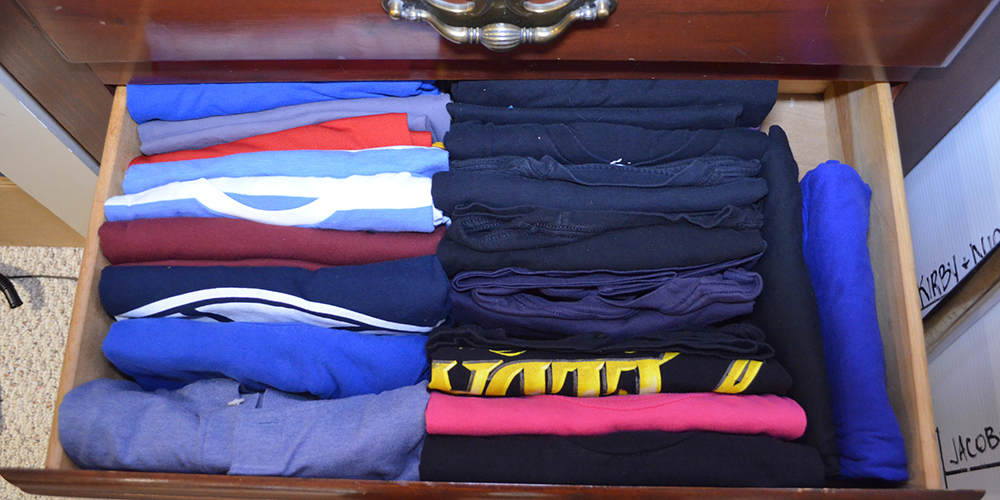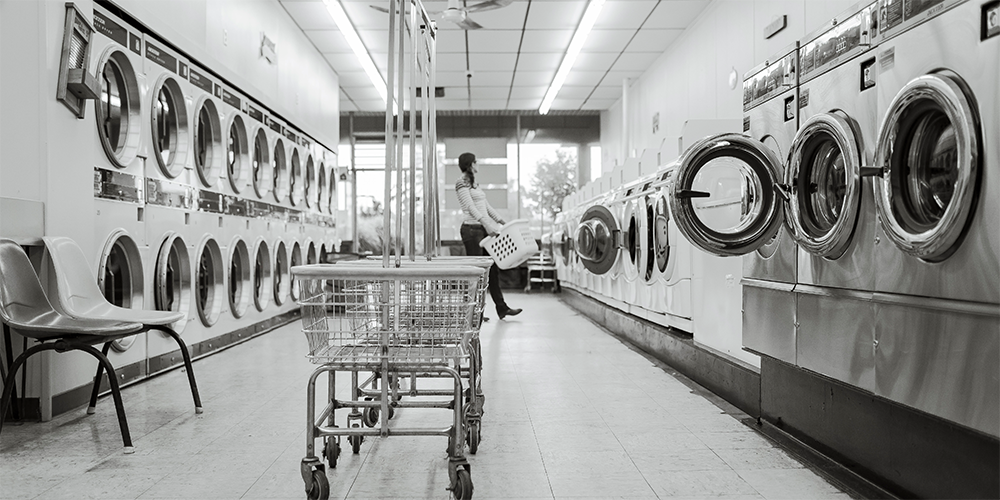Over the last week I’ve been reading Marie Kondo’s The Life-Changing Magic of Tidying Up: The Japanese Art of Decluttering and Organizing [affiliate link], and slowly digesting her “KonMari” method. It’s been pretty eye-opening in terms of changing some habits and jolting me into new ways of thinking.
I’ve always considered myself a pretty messy person, but not sloppy; I feel the latter infers a lack of hygiene that kind of transcends general clutter. I picked up this book mostly because of seeing lots of tweets and general reviews of “this taught me how to get rid of stuff,” which made me curious. Sometimes I try to think about purging a bunch of stuff, but something always sticks out: how do I know I won’t need these things later?
The Life-Changing Magic of Tidying Up is pretty direct; you can kind of tell Kondo is a bit of a weird person, but sometimes that blunt nature is what gets people (like her clients) to actually make change. Sometimes her advice seems like it comes from a place lacking sentimentality, emotion, or empathy; however, it rarely comes from somewhere that feels genuinely mean-spirited or negative. She lacks context to things that can hold a lot of meaning, and sometimes that’s what we need to truly let go.
While I’m not finished with the book, the thing that’s hit me the hardest so far is something she writes about in Chapter 2, under a heading called “What to do when you can’t throw something away.” I’ve added some paragraph breaks for clarity and bolding for emphasis.
When you come across something that’s hard to discard, consider carefully why you have that specific item in the first place. When did you get it and what meaning did it have for you then? Reassess the role it plays in your life.
If, for example, you have some clothes that you bought but never wear, examine them one at a time. Where did you buy that particular outfit and why? If you bought it because you thought it looked cool in the shop, it has fulfilled the function of giving you a thrill when you bought it. Then why did you never wear it?
Was it because you realized that it didn’t suit you when you tried it on at home? If so, and if you no longer buy clothes of the same style or color, it has fulfilled another important function—it has taught you what doesn’t suit you. In fact, that particular article of clothing has already completed its role in your life, and you are free to say, “Thank you for giving me joy when I bought you,” or “Thank you for teaching me what doesn’t suit me,” and let it go.
This hit me hard, mostly because I saw applications toward my life in things besides my clothes. I have a problem with guilt in general; a lot of my neuroses are based around it, and especially when it comes to money, spending, and things that sit on my shelf. I don’t like throwing those things away, because doing so is essentially the admission that I made a bad or irresponsible choice. This is doubly true when I haven’t totally eliminated the possibility of using/consuming it one day.
The thing is, it isn’t technically irresponsible, or not at least when it’s framed in the thinking of above. After reading this passage, I opened my Steam library and remembered a lot of games that I have installed on my system that I don’t really plan to play. These are usually long RPGs that require a huge time investment to start, and I always think “yeah, I’ll get around to them after I finish X, Y, or Z.”
Because I’m not enthusiastic about them in the first place, I never get around to them — keeping them installed at least lies to my brain and says “don’t feel bad or guilty, because hey, you might play them if you get the right mood on the right day! Having them installed means you’re interested!”
The thing is, that day is probably never coming, and re-framing my thinking means that I’m more okay to say “Thank you for giving me joy when I bought you,” or “Thank you for teaching me what doesn’t suit me,” even if I still feel a little crappy about that. I don’t like spending money for the satisfaction of spending money: I want to believe I’m better than that. However, it’s almost like dealing with a smaller painful truth once instead of living a larger, painful lie. It allows you to move on, accept what’s happened, and learn.
So rest in peace, my halfway-done Valkyria Chronicles save. Sorry for never getting started, Trails in the Sky. If only the timing were different, Grim Fandango. It’s probably for the best.

Letting these things go, especially if they’re critically well-regarded, is hard because you don’t want to believe that you yourself have terrible taste. However, the more I think about it, the more it doesn’t matter; by forcing it, you are probably making your life harder by trying to mold yourself into a person you aren’t all that enthusiastic to be.
I soon applied the same thinking to my bookshelf, clothes dresser, and all the other stuff that’s just taking up space. Books I bought because I wanted to be interested about the subject (but aren’t) about are going to the library. Clothes that I thought would make me look more adult are going to Goodwill. Stuff that I bought to turn myself into someone that didn’t feel right in the long term isn’t going to stick around, and I’m not going to feel bad about it.
I don’t often notice definite change within myself, but something about this passage flicked a switch where I’m absolving myself of guilt and just moving on from that weight. Obviously this is different for heavier personal issues, rather than clutter and personal effects — I still think it’s progress, if not some baby steps.
I’d definitely recommend the book if you’re looking to get some kind of organization going in your life, or if you have trouble letting things go. I don’t think I’m ready to abandon everything for minimalism quite yet, but focusing on appreciating the things I’m excited about will help me be more present, grateful, and happy.
If you’re thinking about buying The Life-Changing Magic of Tidying Up: The Japanese Art of Decluttering and Organizing, consider using my affiliate link.
Stock images on this page come from Pexels and have a CC0 license.


Leave a Reply